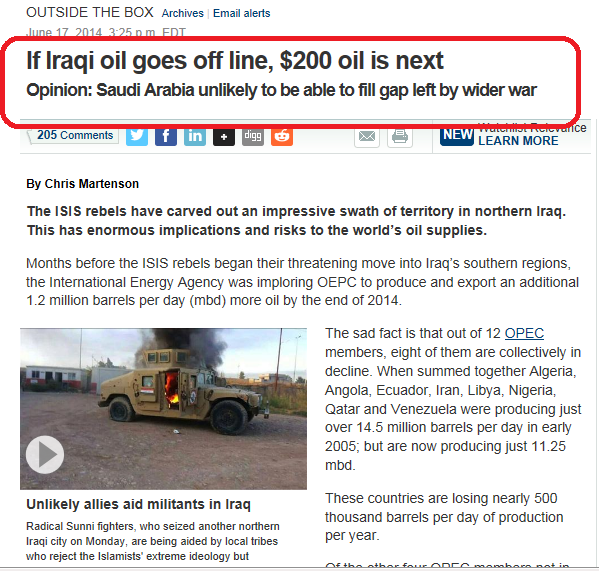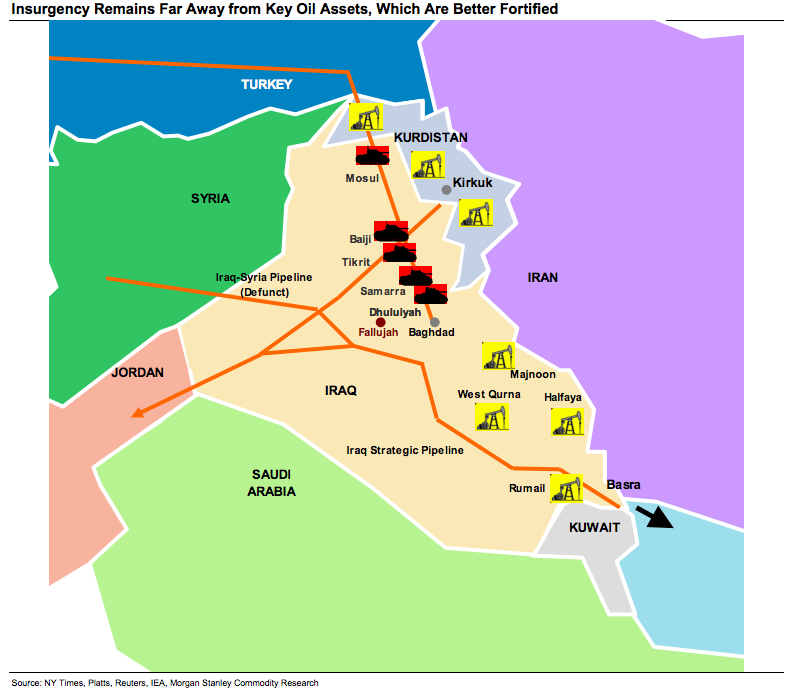Are you a good investor? Do you believe in the supremacy of free markets? Let's test your convictions.
I have always believed that investors should be politically agnostic about their market views. While I have my own political beliefs, I try to keep them away from the way I invest, because allowing political views to influence how funds are deployed can be detrimental to a portfolio. The better question should be how a specific approach or event is likely to affect the risk and return characteristics of a portfolio.
How socially responsible?
I offer two examples, one as a criticism of the Left and the other of the Right. The first is a board or the staff of a fund, whether pension, endowment or other, to consider socially responsible investing for political reasons. Unless the owners of the fund have explicitly specified a social theme to the investing process as part of the investment mandate, the board could be in breach of their fiduciary responsibility for venturing into socially responsible investing, as such an approach is likely to deliver inferior risk-adjusted expected returns compared to a similar unconstrained portfolio.
Knee-jerk reaction to Iraqi developments
The second example is the reaction by the talking heads to the military gains by ISIS in Iraq. The reaction falls into two categories, both wrong. The first is a knee-jerk fear of a cutoff in oil supply:
As I showed in a previous post, most of current Iraqi oil production goes through the south and there is little chance that southern production will be endangered (see Apocalypse Later). As this oil map from Morgan Stanley shows, Iraqi oil production is well insulated from the rebels (via Business Insider):
Madmen or pragmatists?
Let's consider the worst case analysis. What if the Baghdad government were to crumble and ISIS were to take over? What are the market implications?
Even though ISIS has been labeled as an al-Qaeda affiliate (AQIQ) in the press, an article in the Guardian indicates that the leadership is skilled and highly pragmatic. Here is what western intelligence found in a raid. In particular, pay attention to their finances (emphasis added):
The group's leaders had been meticulously chosen. Many of those who reported to the top tier – all battle-hardened veterans of the insurgency against US forces nearly a decade ago – did not know the names of their colleagues. The strategic acumen of Isis was impressive – so too its attention to detail. "They had itemised everything," the source said. "Down to the smallest detail."
Over the past year, foreign intelligence officials had learned that Isis secured massive cashflows from the oilfields of eastern Syria, which it had commandeered in late 2012, and some of which it had sold back to the Syrian regime. It was also known to have reaped windfalls from smuggling all manner of raw materials pillaged from the crumbling state, as well as priceless antiquities from archaeological digs.
But here before them in extraordinary detail were accounts that would have breezed past forensic accountants, giving a full reckoning of a war effort. It soon became clear that in less than three years, Isis had grown from a ragtag band of extremists to perhaps the most cash-rich and capable terror group in the world.
"They had taken $36m from al-Nabuk alone [an area in the Qalamoun mountains west of Damascus]. The antiquities there are up to 8,000 years old," the intelligence official said. "Before this, the western officials had been asking us where they had gotten some of their money from, $50,000 here, or $20,000 there. It was peanuts. Now they know and we know. They had done this all themselves. There was no state actor at all behind them, which we had long known. They don't need one."
The scale of Isis's resources seems to have prepared it for the improbable. But even by its ruthless standards, occupying two major cities in Iraq in three days, holding on to parts of Falluja and Ramadi, and menacing Kirkuk and Samara, was quite an accomplishment.
Therein lies the Achilles Heel of ISIS. They are prepared for power. They want to govern. An article in The Atlantic indicated that they even built a bureaucracy to fix potholes, create health and welfare programs and and even built a consumer protection agency! Most of all, they are interested in money to fund their operations.
Now consider the dire scenario where ISIS overran all of Iraq and the market implications of such a development. Would oil production stop? Maybe briefly, then it would resume.
So what is the market so worried about? They people may seem like madmen intent on destroying western influence and culture, but their actions have shown themselves to be rational actors. This means that they not madmen at all, but relatively predicable and could be bargained with.
Political implications are dire
To be sure, these people are bad news for western interests. Even if a stalemate were to set in today, ISIS has sufficient territory that it can create another safe haven for terrorists to raid western interests. The Guardian article mentioned "foreign jihadists", many of whom presumably have western passports and have the potential to eventually infiltrate back into western countries to cause havoc:
Foreign jihadists, many from Europe, were among those who stormed into Mosul and have spread through central Iraq ever since. Most of their names were already known to the intelligence agencies which had tried to track their movements after they arrived in Turkey, then disappeared, initially across the Syrian border. But noms de guerre given to the new arrivals had left their trails cold. Now officials had details of next of kin, and often phone numbers and emails.
(As an antidote to MSM reporting, consider this analysis of ISIS from Juan Cole as to why the group is not as big a threat as many think.)
As a market participant, I view any market weakness caused by fears of ISIS gains to be a buying opportunity. As someone whose futures are tied to western interests (as are virtually all of my readers), I view the emergence of ISIS as bad news.
However, I am able to divorce my political views from my investment views, just as board members eschew socially responsible investing without an explicit mandate, regardless of their own personal views.
In that sense, Karl Marx was right when he said, "The last capitalists we hang will be the one who sold us the rope."
Disclosure: Cam Hui is a portfolio manager at Qwest Investment Fund Management Ltd. (“Qwest”). The opinions and any recommendations expressed in the blog are those of the author and do not reflect the opinions and recommendations of Qwest. Qwest reviews Mr. Hui’s blog to ensure it is connected with Mr. Hui’s obligation to deal fairly, honestly and in good faith with the blog’s readers.”
None of the information or opinions expressed in this blog constitutes a solicitation for the purchase or sale of any security or other instrument. Nothing in this blog constitutes investment advice and any recommendations that may be contained herein have not been based upon a consideration of the investment objectives, financial situation or particular needs of any specific recipient. Any purchase or sale activity in any securities or other instrument should be based upon your own analysis and conclusions. Past performance is not indicative of future results. Either Qwest or I may hold or control long or short positions in the securities or instruments mentioned.


